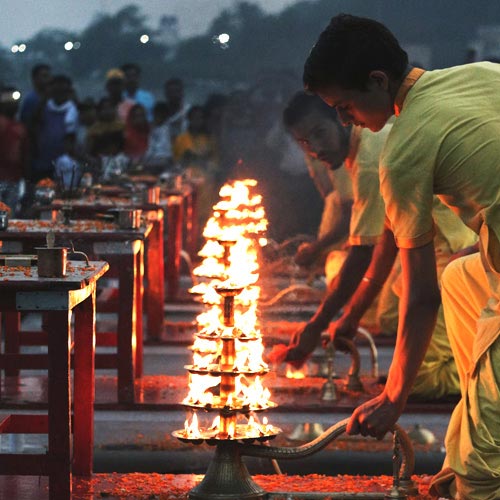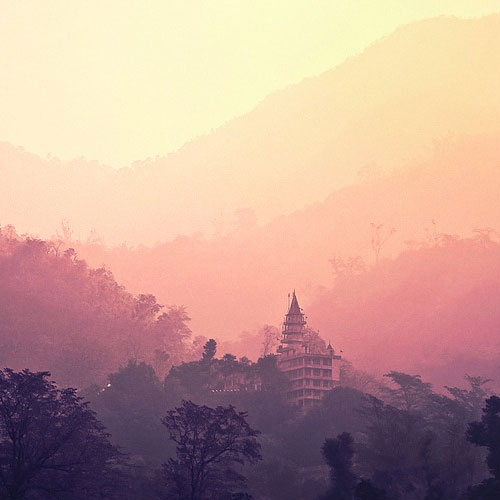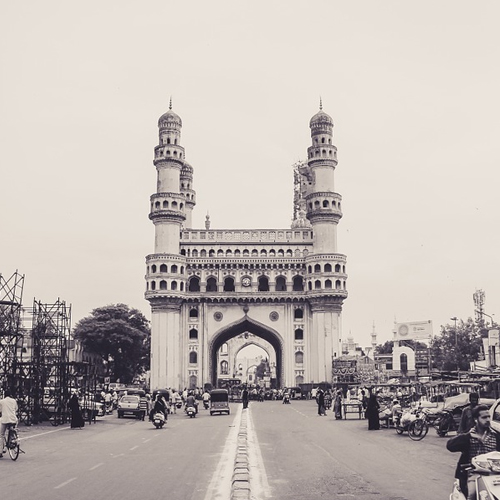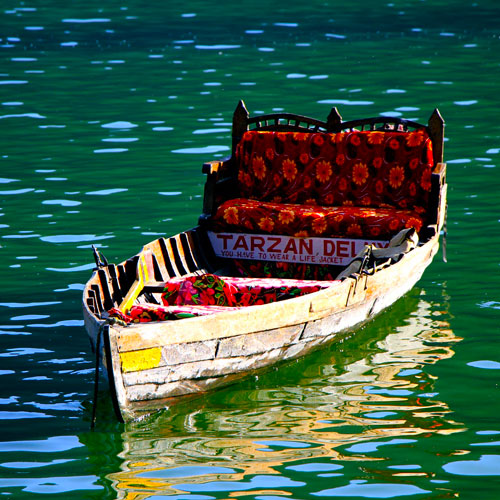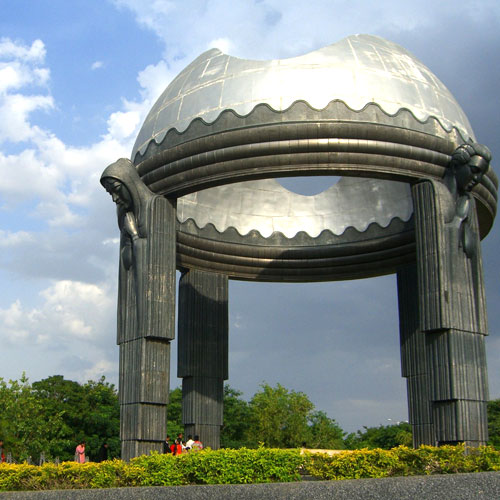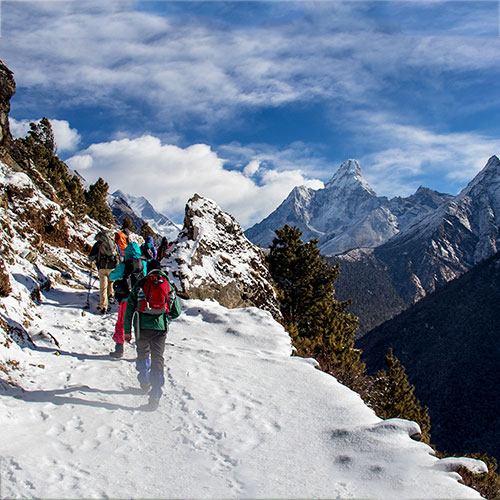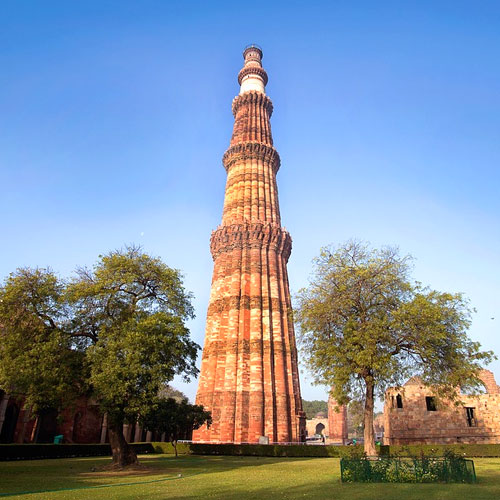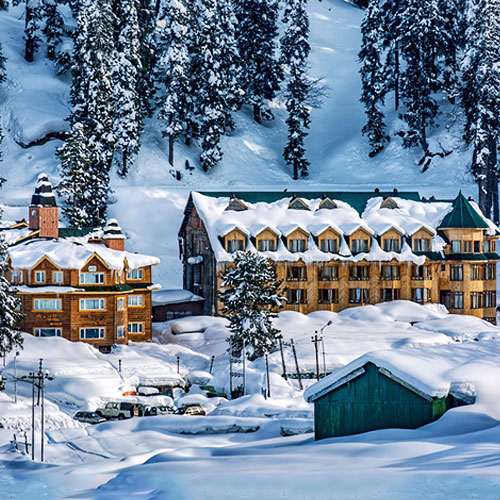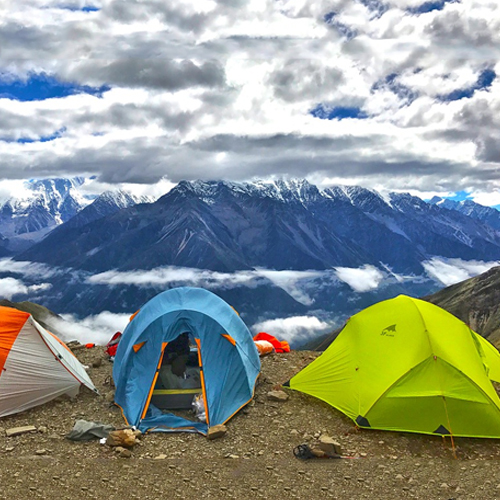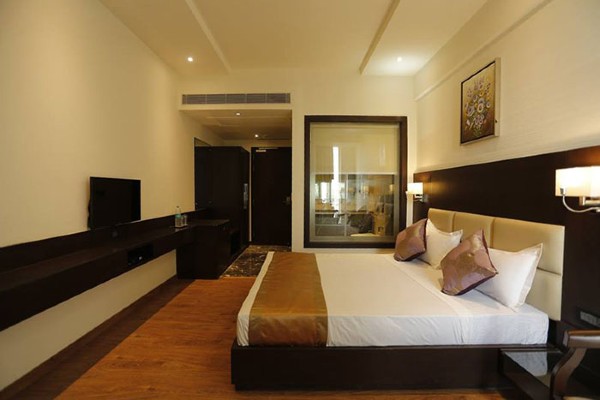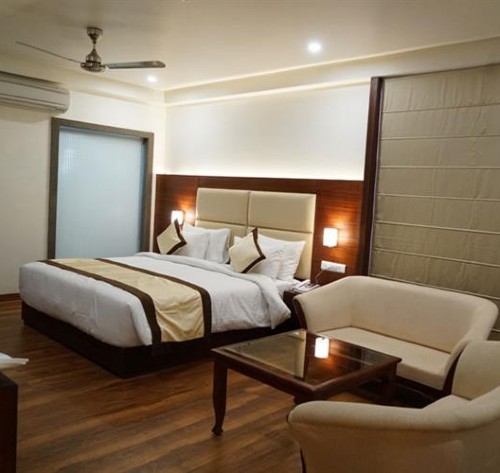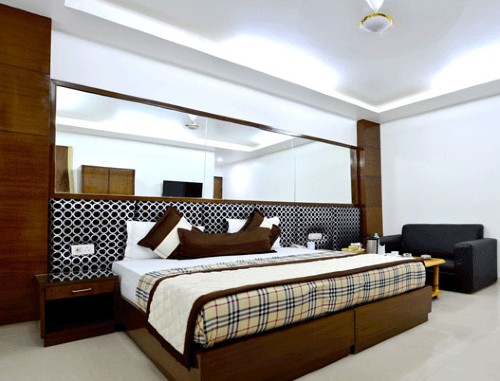Royal Rajasthan and Taj Mahal Tour
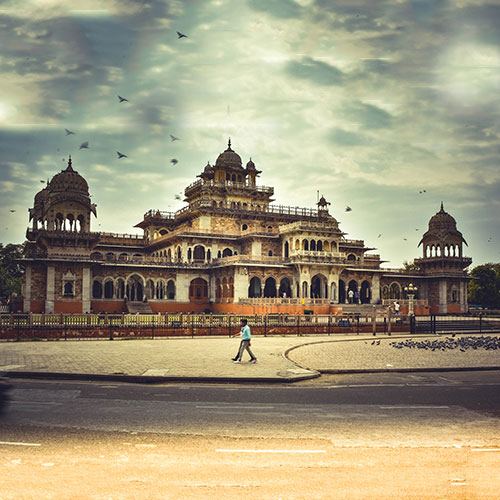
Enthralling, historical Jaipur has Jal Mahal, Amber Fort, Jantar-Mantar, Hawa Mahal, Albert Hall (Central Museum), Nahargarh Fort. Jaipur holds a special place in everyone’s heart every traveler will enjoy the stay at the old halevis in the region.
Agra , Agra fort is the Gem of Mughal era. There are no unique words to express Agra. An earth-shattering symbol of love at India.
New Delhi has places like India Gate, Red Fort, Qutab Minar. Jaipur has Jal Mahal, Amber Fort, Jantar-Mantar, Hawa Mahal, Central Museum , Nahargarh Fort.
-
Day1
ARRIVAL AT DELHI
Arrive at the Delhi Airport. Meet and Greet at the Airport. Our representative will take you to the hotel. Overnight stay at the Hotel.
-
Day2
DELHI - AGRA SIGHTSEEING
Arrive at the New Delhi International/ Domestic Airport at New Delhi, from the Airport will drive to historical and romantic city - Agra. We will reach the hotel by Afternoon. After Check in and lunch visit The world famous Taj Mahal - the most precious gift of love built by Emperor Shah Jahan for his loving wife Mumtaz. After Taj Mahal we will move towards AGRA FORT and Also visit the Marble making factories to see traditional workers making amazing marble crafts. Overnight stay at Agra.
| |
-
Day3
AGRA TO JAIPUR VIA FATEHPUR SIKRI
After breakfast, depart for Jaipur. It takes you through the beautiful countryside. Enroute we stop to visit Fatehpur Sikri – which has been described as “the world’s most perfectly preserved ghost town”. Built by Akbar in the late 16th century, it was abandoned after only 14 years, and the elegant buildings of this superb walled city remain intact to this day. After Fatehpur Sikri, you would start your journey to the beautiful Pink City of Rajasthan -JAIPUR. The total distance of 240 km’s would be covered by ROAD and it would take approximately 4 hours to reach Jaipur, the city built by Maharaja Jai Singh II and where all houses are painted in different shades of Pink. We reach Jaipur by evening. Rest at the Hotel. Night stay at the Hotel in Jaipur.
| |
-
Day4
SIGHTSEEING IN JAIPUR
This day is dedicated to sightseeing in Jaipur which would start as soon as you have your breakfast at the hotel. You would be visiting the massive hill top fortress – THE AMBER FORT where you can enjoy a ride on the decorated and painted elephant. Click photographs and get impressed at the architectural brilliance of that time. On the way, back from Amber fort, you would stop at another beautiful landscape of the city – THE HAWA MAHAL or the Palace of Winds. The last place to visit before you call it a day is the UNESCO world Heritage Site, The JAIPUR OBSERVATORY which shows the astronomical skills and the cosmological skills of that time. It is the most significant, comprehensive and best preserved historic observatories in India. Dinner at the Hotel. Overnight stay in Jaipur.
|
-
Day5
JAIPUR – UDAIPUR
It would not be wrong to say that Jaipur and Udaipur are two jewels of Rajasthan and so our next destination is Udaipur. Udaipur the City of Lakes is encapsuled in between lakes and hence the name. So, next morning we will reach Udaipur by Road. In between we will stop at Ranakpur which is famous for its Jain Temples. Take a break and enjoy the beautiful of the temples. After reaching Udaipur. Overnight stay in Udaipur Hotel.
| |
-
Day6
UDAIPUR SIGHTSEEING
Udaipur is famous for its lakes and palaces. It the place where James Bond Octopussy was shot and many of Bollywood movies are frequently shot. So, soon after you finish your breakfast we shall take you to City Palace. See the world’s largest crystal gallery in City Palace and then move on to see the Lake Palace. For lunch we shall take you to Maharana Sawai Madho Singh Vintage Car Museum. After lunch, we shall take you to Shilpigram. Basically a crafts bazaar; Shilpgram showcases Indian handicraft in totality. In the evening, enjoy boating at Fateh Sagar Lake after which we shall take you for Light and Sound Show. Dinner shall be served in the hotel.
|
-
Day7
UDAIPUR – JODHPUR
Jodhpur is known as the Sun City of Rajasthan. It’s a 5 hours ride down the lane. After breakfast in Udaipur hotel we shall begin for Jodhpur. In between we will take a short break at one of the resorts for ethnic Rajasthani lunch. Jodhpur is famous for three things – Mehrangardh Fort, Umaid Bhavan Palace and Mehandi! So, the first thing we will see in Jodhpur is Mehrangardh Fort - the longest Fort of India. What is unique here is the armoury and the paintings which are all across the fort. Umaid Bhawan Palace built by British Architect Henry Lanchester, is the official residence of present Maharajah. See the architectural beauty of the place and enjoy coffee/tea at the Coffee Shop of the Palace. After this, we will take you to see the Jain Temples. Take a city tour in the evening as we take you shopping. Dinner shall be served in the hotel only. Sleep tight as we have a number of places to explore!
| |
-
Day8
JODHPUR – JAISALMER
Jodhpur is famous for three things – Mehrangardh Fort, Umaid Bhavan Palace and Mehandi! So, the first thing we will seen on 9th day of the tour is Mehrangardh Fort - the longest Fort of India. What is unique here is the armoury and the paintings which are all across the fort. Umaid Bhawan Palace built by British Architect Henry Lanchester, is the official residence. Soon after lunch, we will take you to see the Jain Temples. Take a city tour in the evening as we take you shopping. You can also try Mehndi application in the evening if you wish! Dinner shall be served in the hotel only. Our next destination is Jaisalmer – the Golden City of Rajasthan. We will begin for this place after you finish your breakfast. It’s a 4 hour drive and we reach by noon. Check in the hotel and have lunch as we shall take you for a city tour in the evening. Take a boat ride in Gadisagar lake or simply sit by it. You can also shop a little here. In the evening we will take you for Puppet show in at Thar Heritage Museum. This dying art of India is a must see. Dinner shall be served in the hotel.
|
-
Day9
JAISALMER SIGHTSEEING
Jaisalmer is known for its Sand Dunes and Havelis. Once you are here, you get to see both. Soon after a heavy breakfast, we shall set on to see Kuldhara Village. This famous haunted village is just half hour drive from Jaisalmer. Get to know more about it from your tour guide. After this we will be back to see Jaisalmer Fort and Nathmal Ji Ki Haveli. Both of these give a good peep into the living lifestyle of the then Kings and the rich! Soon after lunch we shall take you to Sand Dunes for true Rajasthani Cultural Program and dinner. Here we will take you for a Camel Ride too!
|
-
Day10
JAISALMER - BIKANER
Jaisalmer is known for its Sand Dunes and Havelis. Once you are here, you get to see both. Soon after a heavy breakfast, we shall set on to see Kuldhara Village. This famous haunted village is just half hour drive from Jaisalmer. Get to know more about it from your tour guide. After this we will be back to see Jaisalmer Fort and Nathmal Ji Ki Haveli. Both of these give a good peep into the living lifestyle of the then Kings and the rich! Soon after lunch we shall take you to Sand Dunes for true Rajasthani Cultural Program and dinner. Here we will take you for a Camel Ride too!
|
-
Day11
BIKANER- MANDAWA
On the second last day of the tour, we shall see some of the best tourist places around Mandawa. Its famous for its Rajasthani Havelis and the architecture of these. Here we shall take you to some of the most famous ones – Binsidhar Newatia, Murmuria and Chokhani Double Haveli. Watch out for peacock and European art paintings.
|
-
Day12
MANDAWA - DELHI
Today after Breakfast we leave for Delhi. It’s a long Journey so we leave a little early. We reach Delhi by evening. Check in at the hotel. Overnight stay at the Hotel.
-
Day13
DELHI SIGHTSEEING
After breakfast you would proceed for a full Day sightseeing tour of the Capital. The first place to visit would be the city’s most captivating areas, with an explosion of sights, smells, and sounds- OLD DELHI and its main market called CHANDNI CHOWK where you can see a variety of things and also savour the yummy food at their Paratha Wail Gali. Next you would see the marvel in red sandstone and the most iconic buildings of Delhi- The RED FORT which was commissioned by Shah Jahan to be his residence and modelled around the Agra fort. After clicking photographs, you head RAJ GHAT, INDIA GATE, RASHTRAPATI BHAWAN, PARLIAMENT STREET etc. The tour would end at the pride possession of Delhi, QUTAB MINAR, a 11th Century minaret built by Qutab-ud-din Aibek standing at a height of 72.5 meters. Built in red sandstone, it is a marvel in itself for the intricate carvings and the carved verses from the holy Qur’an.
-
Day14
DELHI SIGHTSEEING
It is the last day of the tour, after breakfast you would proceed for some shopping for your friends and relatives.
Inclusion
-
Accommodation with breakfast in the selected hotels on twin or triple sharing basis.
-
Meal Plan as per the itinerary.
-
Assisstance of driver cum guide.
-
All transfers and sightseeing by Air conditioned vehicle.
-
Driver allowance, Fuel charges, Parking, Toll, Interstate tax etc.
Exclusion
-
International airfare and airport taxes.
-
Travel Insurance
-
All Entrances fees
-
Tips and porter charges
-
Personal expenses.
-
Any other services not specified above







AGRA
1. Taj Mahal - The Taj Mahal is an ivory-white marble mausoleum on the south bank of the Yamuna river in the Indian city of Agra. Come to unfold the pages from the past to churn the charm out of its mystique and enrich your imagination about this marvel of an epic in stone, The Taj!
2. Agra Fort - Agra Fort is a historical fort in the city of Agra in India. The fort is a UNESCO World Heritage site. Before the capital was shifted from Agra to Delhi, It was the main residence of the emperors of the Mughal Dynasty until 1638.
3. Tomb of Akbar the Great - Akbar’s tomb is the resting place of Akbar, Mughal Emperor. This is the mausoleum that Akbar chose for himself but could not finish it during his time. However, people choose winter, as it will be pleasing with mild climate.
4. Jama Mosque - Jama Masjid in Agra is opposite the Agra fort is one of the largest mosques in India. Every Friday, special prayers are conducted at this mosque which is attended by thousands of devotees.
5. Fatehpur Sikri - Fatehpur Sikri is a small city in northern India, this magnificent fortified ancient city, 40km west of Agra, was the short-lived capital of the Mughal empire between 1572 and 1585, during the reign of Emperor Akbar.
JAIPUR
1. Amber Palace - Amer Fort is located in Amer, Rajasthan which is located 11 kilometres from Jaipur, the capital of Rajasthan. Amber fort was declared as UNESCO World Heritage Site is one of the most well-known and most-visited forts in India.
2. Hawa Mahal - Hawa Mahal or the 'Palace Of The Winds' located in the heart of the beautiful Pink City of Jaipur, is one of the most famous tourist attractions and a prominent landmark of the city on its rich cultural and architectural history.
3. City Palace - Jaipur is the first designed city of medieval India. The city is divided into nine blocks and the royal palace is situated at the centre of the city. The City Palace complex is spread over a large area occupying one seventh of the old city of Jaipur.
4. Jantar Mantar - Jantar Mantar is an astronomical observatory used to measure the distances and positions of celestial objects. India has a total of five such observatories the largest of which is in Jaipur.
5. Jal Mahal - Jal Mahal is a palace in the middle of the Man Sagar Lake in Jaipur city. This majestic scene makes the Jal Mahal Jaipur’s most photographed monument but unfortunately the exploration of the actual palace is off restrictions to the majority of visitors to be transformed into an ultra exclusive restaurant.
DELHI
1. Red Fort - The Red Fort is a historic fort in the city of Delhi, capital of India. Nearly 200 years, it was the main residence of the emperors of the Mughal dynasty, until 1856. It is located in the centre of Delhi and houses a number of museums.
2. Qutub Minar - The Qutub Minar, a UNESCO World Heritage Site in the Mehrauli area of Delhi, it is the most popular monument in India. The red sandstone tower of Qutb Minar is 72.5 meter high, tapering from 2.75 meter in diameter at its peak to 14.32 meter at its base, and alternating angular and rounded flutings.
3. Jama Masjid - The Jama Masjid of Delhi, is one of the largest mosques in India, was built by Mughal Emperor Shah Jahan between 1644 and 1656 at a cost of 1 million rupees.
4. India Gate - The India Gate is a war memorial to Undivided Indian Army soldiers who died during World War I, located astride the Rajpath, on the eastern edge of the "ceremonial axis" of New Delhi, India, formerly called Kingsway.
5. Old Delhi - Old Delhi or Purani Dilli was founded as a walled city of Delhi, India, founded as Shahjahanabad in 1639, when Shah Jahan, the Mughal emperor at the time, decided to shift the Mughal capital from Agra.




